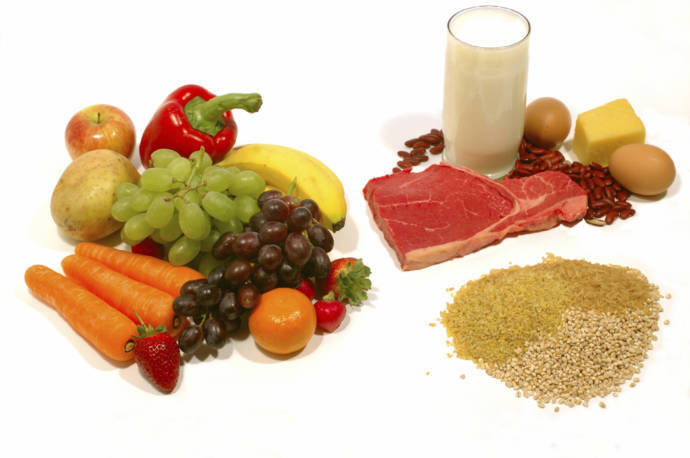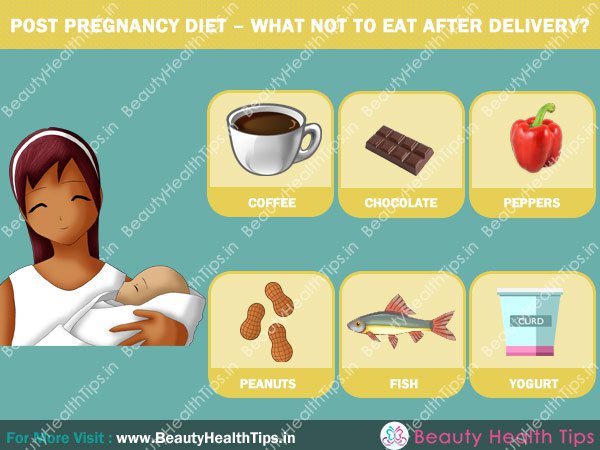It is always important to take a healthy diet on a day to day basis and more so when you are pregnant. During pregnancy the requirements of nutrients in the body increases naturally, and hence if you have been following an unhealthy diet so far, this is the time when you should get your diet into the right shape and structure for you and also for your baby. Improper diet during pregnancy can lead to major complications in pregnancy and also health issues for your child. So, this is a time when you just cannot pass your day by eating anything, rather you have to maintain a proper diet routine to ensure that your body gets all the nutrients it needs during this time in proper amount.
However, following a healthy diet does not mean eating a lot. It means eating the much that fills the needs of your body and your body is not under a starved or stressed condition which can have a direct negative impact on the health of the baby. Increasing the total intake of calorie will not help you in anyway, unless that calorie is accompanied with proper nutrients. So, plan your daily diet in a wayso that it includes sufficient nutrients that your body needs.
Apart from the regular carbohydrate and proteins that your body needs for producing energy, during pregnancy the need of particular vitamins and minerals in the body is increased as they are used also for supplying nutrition to the growing fetus. So, if you already maintain a healthy diet, you might not need to change anything in your diet plan during the first two semesters of pregnancy, unless asked otherwise by your doctor; but in case you have an unhealthy diet routine, getting into a proper diet is a pre-requisite of pregnancy, as your body needs to be ready to house and nourish the baby.
According to the latest researches, an average normal woman might not need any added calories in her diet in the first six months of the pregnancy. At this stage, the body becomes more efficient for extracting the nutrients from the daily food taken by the expecting mother and hence the same food can meet the nutrition needs of both the mother and the child. A pregnant woman will need around 200 calories extra everyday during the third semester of her pregnancy and commonly doctors suggest to taking around 300 extra calories daily during this time. However, in particular cases, the need for calorie intake can vary and it is important that you decide your total daily calorie intake during different stages of the pregnancy according to the suggestions of your doctor.
To ensure a healthy diet that is perfect for a pregnant woman include the following in your diet in sufficient quantity,
Carbohydrate
Carbohydrate work as a major building block in our body and you need to include sufficient amount of carbohydrate in your daily diet to get the calorie you need. Simple carbohydrate present in rice, wheat, cereals, potato can fill your daily diet requirements when taken in right quantity. Set the amount of carbohydrate in your diet after discussing with your doctor.
Protein
Protein work as the main source of energy in the body and hence including sufficient amount of protein in your diet during pregnancy is more than important. Fish and poultry, including chicken and eggs, are rich in protein, but if you are having problems with digestion sticking to light preparation of fish and chicken stew can be a great idea. However, when taking animal sources of protein, always ensure that the food is well cooked. Pulses are also a rich source of protein and including them in the diet of a pregnant woman is always a good idea.
Fat
We have this inbuilt notion in our mind that fat is always bad, but in reality fat is one of the richest things a living body can produce. For a balanced diet, including proper amount of good fats in the diet is necessary. Foods like butter, cheese and ghee are high in saturated fats which are never a healthy choice, so opt for vegetable oils and rice bran oils to make your diet really healthy. Olive oil can also be a health friendly source of fats during pregnancy.
Vitamins and Minerals
Having said about the major nutrients that a pregnant woman need to include in her diet to make it really healthy, now we will focus on the vitamins and minerals that she needs during this stage to ensure a healthy pregnancy.
A bunch of Vitamins and Minerals are needed in our body for smooth functioning. In the body, these elements are usually needed in less amount, but in case there is even a minimum scarcity of any of these elements, the total mechanism of the body can lose its balance all of a sudden. So ensuring the presence of adequate vitamins and minerals in the diet of a pregnant woman is a must. The best source of vitamins and minerals are the vegetables and fruits. Hence include them in major amount in your regular diet.
Folic acid and Iron
Folic acid and Iron these two elements play a major role in pregnancy. Scarcity of any of these two elements in the body of a pregnant or even pre-pregnant woman can give rise to serious complications in the fetus and also in the mother. For pregnant women, ensuring that their daily diet includes sufficient amount of folic acid and iron is vital to ensure a healthy pregnancy. Many of the Green, leafy vegetables are rich in both folic acid and iron and the beans and lentils are considered as some of the best natural sources of these elements. So, include every folic acid and iron rich foods in your diet.
Calcium
Apart from Iron and Folic acid, Calcium also plays a vital role in making the bones of the baby and hence taking foods that are rich in calcium is also important. There are animal as well as plant sources of Calcium and Vitamin D3. You can include, pasteurized cow milk, eggs as well as soya milk and beans in your diet in sufficient quantity to get adequate calcium.
Vitamin C and Vitamin A
A pregnant women needs 70gm of Vitamin C everyday and you can get that by including fruit and vegetables like, oranges, strawberries, grapes, tomato, papaya, cauliflower and broccoli in your daily diet. To ensure that your body gets sufficient Vitamin A, bank on vegetables like carrots, turnip greens, beet greens, spinach and squash.
Iodine
The other mineral that plays a serious role in the development and well- being of the brain and nervous system of the fetus is Iodine. During pregnancy you need 250 mg of Iodine daily. Dairy products, like milk, yogurt, cottage cheese and fishes like cod, salmon and shrimp are good sources of Iodine in diet.
Dietary fiber
This is the other thing that a pregnant women needs to include in her diet in order to ensure a healthy pregnancy. Dietary fibers do not play any direct role in the growth of thefetus; it helps the expecting mother in better digestion and better absorption of the nutrients from the food. Including proper amount of dietary fiber in your daily diet, can ensure a better digestive health which can be very helpful for the mother to enjoy a healthy pregnancy. Green leafy vegetables and fruits are filled with dietary fibers.
Water and liquids
During the whole term of pregnancy, keeping your body completely hydrated is essential. Often we miss out water and liquids from including into the pregnancy diet, but in reality they play not a less important role than any other foods. So, drink water and other liquids, like fruit juices, vegetable juices, boiled milk throughout the day in smaller quantity and at smaller intervals in order to stay completely hydrated.
So, now as you know what you should include in your diet for a heathy pregnancy, let us focus on what you should not include in your diet for the same or what you should discard from your diet for enjoying a healthy pregnancy,
Alcoholic drinks
Consuming alcohol during pregnancy can lead to physical or mental defects in the unborn fetus. In addition to that, alcohol dehydrates the body and can lead to many digestive complications in the expecting mother. So, it is a strict no during pregnancy.
Drinks with caffeine
Drinks containing caffeine are not heathy for pregnancy. It has been found that drinking over 200mg of caffeine a day adds to the risk of low birth weight and miscarriage. So, if you cannot stop your daily caffeine intake, simply restrict it to one or two cups daily and try to skip completely on in-between days.
Foods with free calorie
There are a number of junk foods that we know provide only calories but no nutrients to the body. Cold drinks, chips and fast foods are some of the common examples of this type. So, restrict the amount of these foods in your diet.





